federal
Latest

Secret Service bought location data pulled from common apps
The US Secret Service paid a private company for access to location data generated by common smartphone apps.
Christine Fisher08.17.2020
White House cautions against over-regulating AI in new guidelines
Today, the White House proposed 10 principles for federal agencies to consider when regulating artificial intelligence, Reuters reports. The guidelines stress limiting regulatory "overreach" and encourage Europe and other allies to "avoid heavy handed innovation-killing models."
Christine Fisher01.07.2020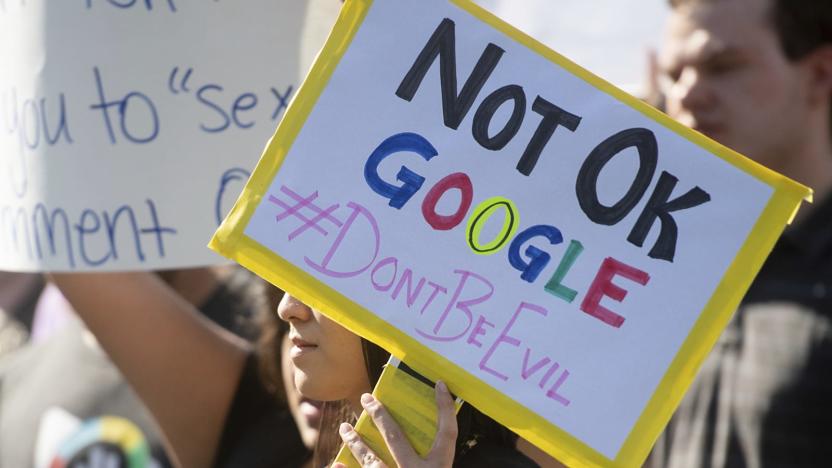
Fired Google employees will file federal labor charges against the company
Four Google employees fired last week say they were let go for engaging in protected labor organizing, and that they plan to fight back. In a letter shared today, they say they're filing unfair labor practice charges with the National Labor Relations Board.
Christine Fisher12.03.2019
Amazon wants to write the rules regulating facial recognition tech
Amazon is drafting laws to regulate facial recognition technology, Vox reports. Supposedly, the company hopes that federal lawmakers will adopt its proposal as legislation. "Our public policy team is actually working on facial recognition regulations; it makes a lot of sense to regulate that," CEO Jeff Bezos said in an appearance following Amazon's hardware event yesterday.
Christine Fisher09.26.2019
The FTC is reportedly investigating Juul's teen marketing tactics
Juul is facing yet another investigation. This time, the Federal Trade Commission (FTC) is looking into the company's marketing practices. It will decide whether Juul used deceptive marketing, including targeting minors and using social media influences, sources familiar with the matter told The Wall Street Journal. The FTC may seek monetary damages.
Christine Fisher08.29.2019
LGBTQ+ creators file lawsuit charging YouTube with discrimination
In a federal lawsuit filed yesterday, a group of LGBTQ+ video creators claims YouTube discriminates against their content. The group alleges that YouTube suppresses their videos, restricts their ability to monetize their channels and enforces its policies unevenly, giving more leeway to producers with large audiences. According to The Washington Post, the suit argues that YouTube deploys "unlawful content regulation, distribution, and monetization practices that stigmatize, restrict, block, demonetize, and financially harm the LGBT Plaintiffs and the greater LGBT Community."
Christine Fisher08.14.2019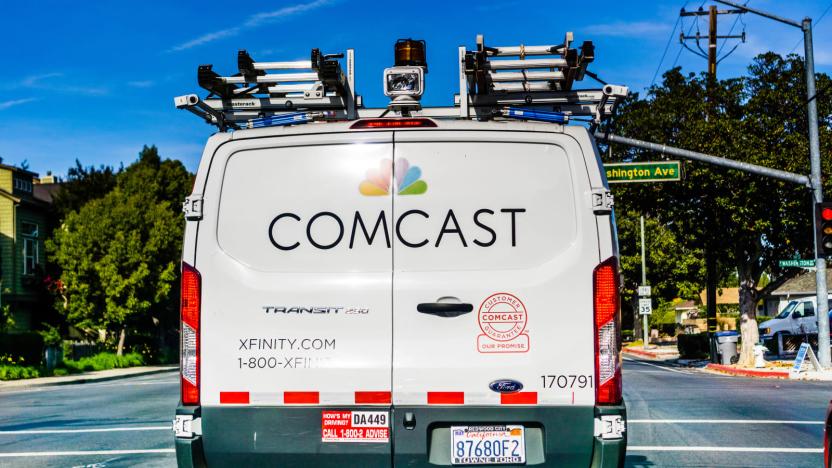
Comcast expands its low-cost internet to another three million households
Since 2011, Comcast's Internet Essentials program has connected more than eight million low-income individuals from two million households to the internet. Today, the company announced that it's bringing low-cost internet to an additional three million low-income households. In addition to high-speed internet at $9.95 per month, plus tax, users will be eligible for free digital literacy training and the option to purchase a computer for less than $150.
Christine Fisher08.06.2019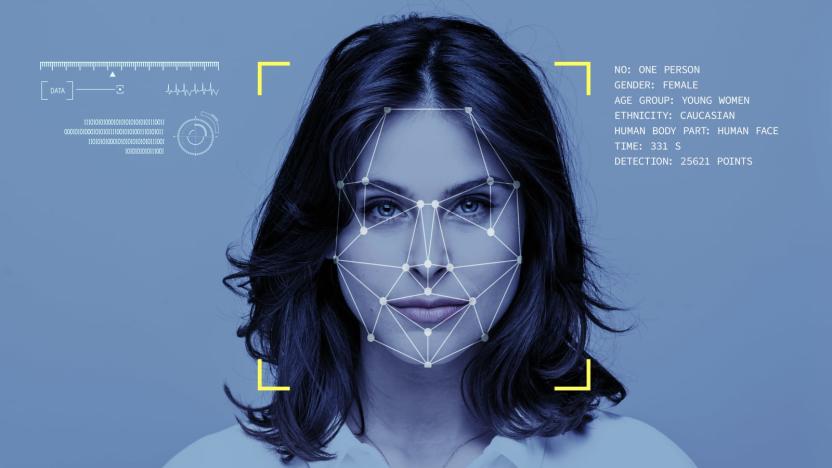
A new bill could ban facial recognition in federally-funded housing
Now that facial recognition is more common, so are the laws aiming to limit its scope. San Francisco, Oakland, Calif. and Somerville, Mass. have all passed laws prohibiting city use of facial recognition. Now, a group of Congresswomen hope to pass the first federal legislation to limit the technology. According to CNET, the No Biometric Barriers to Housing Act is expected to be introduced this week.
Christine Fisher07.23.2019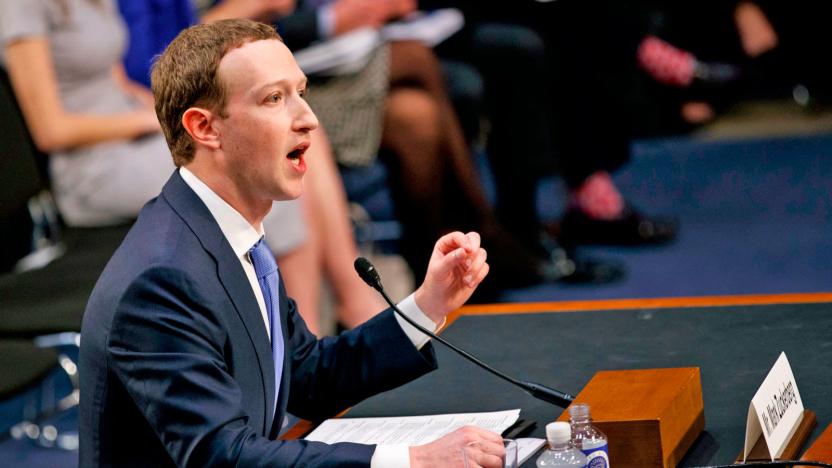
Facebook reportedly invites federal oversight of its privacy practices
During Facebook's F8 keynote this week, the company repeatedly hammered one idea: the future is private. While its privacy-focus might be flawed, it looks like Facebook is putting its money where its mouth is. According to The Washington Post, the company told the US government it's open to greater oversight of its data-collection practices, in exchange for ending a federal probe into a series of privacy flops that surfaced last year.
Christine Fisher05.03.2019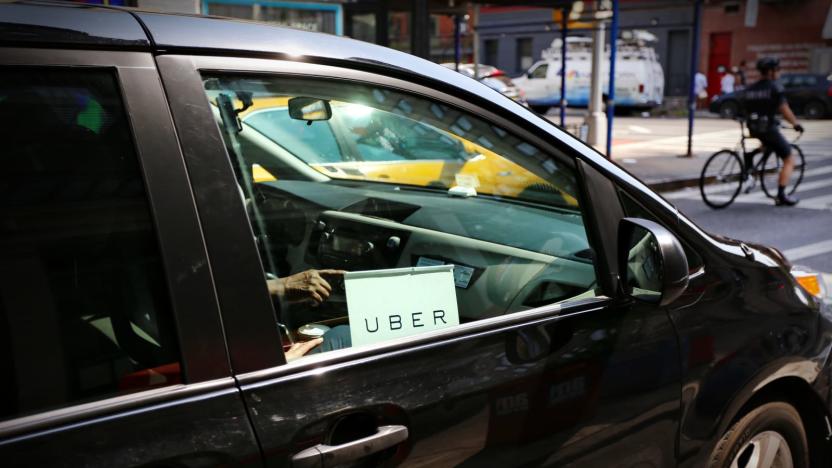
US federal judge rules that UberBlack drivers are not employees
Uber has been fighting the perception that its drivers should be employees for quite some time. Both the UK and the state of California have concluded that drivers should be considered employees and entitled to silly things like minimum wage, holiday pay and other benefits. Now, however, a US judge in Philadelphia has ruled that UberBlack drivers are not, in fact, employees under federal law.
Rob LeFebvre04.12.2018
The FCC is helping cable companies evade consumer protection rules
VoIP (Voice over Internet Protocol): is it an information service or a telecommunications service? This is the question that sits at the heart of an ongoing dispute between the Federal Communications Commission (FCC) and the Minnesota Public Utilities Commission (MPUC), as the FCC takes steps to help cable company Charter avoid state consumer protection rules.
Rachel England11.08.2017
US DOT outlines safe transition to self-driving cars
US legislation for self-driving cars first made its way to the House of Representatives this past July. The bipartisan SELF DRIVE Act passed the House vote on September the 6th, and will now need to go through the Senate. Odds are that we'll see autonomous cars on the road sooner rather than later, thanks to this bill and new voluntary guidance The US Department of Transportation and the National Highway Traffic Safety Administration (NHTSA). The governmental agencies released new guidelines on Tuesday that provide federal guidance for automated driving systems to both individual states and businesses.
Rob LeFebvre09.12.2017
New policy demands 20 percent of federal code be open source
For years, the Obama Administration has been pushing for greater transparency and parity between federal agencies and the general public. After months of negotiations and discussions, the Office of Management and Budget is easing open federal computer code for inspection. The OMB revealed its finalized requirements for the Federal Source Code policy on Monday, which demand federal projects make at least 20 percent of their computer code open source. What's more, agencies will be expected to share all internally-developed code with one another.
Andrew Tarantola08.09.2016
US government wants a single website security standard
We've known that most of the government's anonymous tiplines aren't secure, and Uncle Sam is implementing changes across the board to make HTTPS a standard for federal websites. It's a a "new, strong baseline of user privacy and security" according to a post by 18F, one of the government's internal data agencies. Once in place, this would effectively bring all federal websites up to the security standards many private sector outfits already employ. The White House has put the proposed and final versions on Github if you'd like to compare one against the other, too.
Timothy J. Seppala06.09.2015
Obama orders 40 percent cut in federal government's carbon emissions
No matter how hard his opponents try to ignore or deny climate change, President Barack Obama won't back down. That's why the commander in chief has signed an executive order that'll ensure the federal government cuts its greenhouse gas emissions by 40 percent in the next decade. In addition, agencies will be required to increase the amount of renewable energy it uses up to at least 30 percent in the same period of time.
Daniel Cooper03.19.2015
Mt. Gox reportedly subpoenaed by the feds, CEO confirms leaked proposal was legit
The strange days of (former?) Bitcoin exchange Mt. Gox continue. In a conversation with an industry consultant posted by Fox Business, its CEO Mark Karpeles confirmed that a PDF leaked by The Two Bit Idiot is "more or less" legitimate. According to Karpeles, it was a "bunch of proposals to deal with the issue at hand, not things that are actually planned and/or done." The Wall Street Journal reports its sources confirm that federal prosecutors sent a subpoena to Mt. Gox earlier this month, requiring it to preserve documents. Since the exchange turned out the lights last night, the price of Bitcoin has actually risen again, and is currently showing a buy price of $581 on Coinbase. While the digital currency itself seems to be moving on, what's next for Mt. Gox is unclear. Karpeles sent an email to Reuters indicating an official statement will come "soonish," -- not too soon, we expect, for those waiting to find out what's happened to their funds.
Richard Lawler02.25.2014
Texas federal judge declares Bitcoin a currency, says Bitcoin investments fall under US securities law
Bitcoin's been in the news a fair bit lately due to the uncertainties surrounding the Mt. Gox exchange, where one can trade in the digital money for the official currencies of countries around the world. However, for many, Bitcoin remains an ephemeral idea, neither received nor recognized as a valid way to, you know, pay for stuff. Today, however, a federal judge in the Eastern District of Texas has officially recognized Bitcoin as a currency and declared that Bitcoin investment funds and transactions fall under the jurisdiction of US securities law, and therefore, the federal justice system as well. The ruling was handed down in a case brought by the Securities and Exchange Commission against a man who created a Bitcoin hedge fund and is alleged to have defrauded the investors in that fund. So, while most of us don't have to worry about Bitcoin fraud, it's good to know that the federal government is looking out for us should we decide to invest in the digital currency.
Michael Gorman08.07.2013
Judge rules Facebook users can share friends' profiles with the feds
It's not the backdoor access that the FBI has been pushing for, but US District Judge William Pauley III has now ruled that it and other law enforcement agencies are entitled to view your Facebook profile if one of your "friends" gives them permission to do so. As GigaOm reports, that ruling comes as part of a New York City racketeering trial, in which one of the accused, Melvin Colon, had tried to suppress evidence turned up on Facebook that led to his indictment. That information was obtained through an informant who gave investigators access to the profile, something that Colon had argued violated his rights against unreasonable searches and seizures under the Fourth Amendment. In the ruling, Judge Pauley dismissed that claim, likening the Facebook access instead to a phone wiretap in which one person on the call allows the government to monitor it -- a practice that has been ruled constitutional. GigaOm also has the ruling in its entirety at the source link below for those interested.
Donald Melanson08.16.2012
Sixth Circuit rules that law enforcement doesn't need a warrant to track your phone
If you go through tin foil like there's no tomorrow (or because you think there's no tomorrow), you might want to head down the store. A recent 2 - 1 ruling by the Sixth Circuit Court of Appeals has determined that law enforcement agencies can obtain cellphone location data, without the need for a warrant. The decision comes after a defendant in a drug-related case claimed protection from his phone's GPS location data being used under the Fourth Amendment. Judge John Rogers stated that the defendant didn't have a reasonable expectation of privacy for data given off by a voluntarily purchased phone, going on to state that if tools used in such crimes give off a trackable signal, police should be allowed to use it. Rogers likened it to the use of dogs tracking a scent, and criminals complaining they didn't know they were giving one off, or that the dog had picked it up. The use of technology in crime prevention, be it police tools, or that belonging to the greater population, has long been a source of complex discussion, and this latest development is unlikely to be the end of it. But for now, at least one guy is rueing his decision to get a better phone. Hit the source for the full case history.
James Trew08.15.2012
Logitech introduces spill resistant keyboards for the feds, prevents Bauer flip-out
Logitech might be in the midst of a corporate revolution, but it still has time to produce peripherals just for the G-men (and women). The Swiss company has produced a keyboard and mouse that satisfy all TAA guidelines and, most importantly, answered "no" when asked if they are, or were ever a member of the communist party. The pairing can be picked up by federal IT buyers for $35 and are fully "spill resistant," so we can't blame the forthcoming robopocalypse on a wayward cup of coffee.
Daniel Cooper04.30.2012